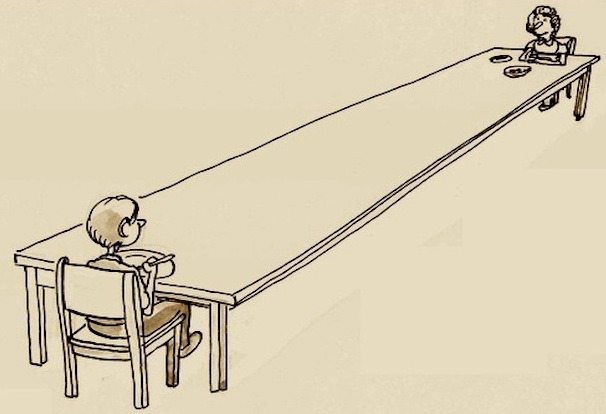How can we rebuild relationships with loved ones from whom we’ve become estranged?? Let’s face it; if you have family, you almost certainly have relatives who fall into that category.
Of course, I know that with some estranged family members, we’re more content to keep them at bay, and feel justified in doing so. (Although, even there, we should at least acknowledge that we do pay a cost for the estrangement.) But here, I’m talking about the breakdowns in relationships we really wish could be repaired. Most of us all have at least one or two of those, right?
What concrete signal can you send that you really want to rebuild the relationship?
I don’t know anyone who, when being fully honest, can’t name loved ones with whom they wished things were going better. The falling out, or falling away, may have nothing to do with love. It may not be about what they (or you) did or failed to do – it may simply be how things are.
All human relationships have their ups and downs – their moments of coming close, and their periods of drawing apart. But when it feels like it’s too much of the latter, there are actually things that we can do to remedy, or at least improve, the situation. It’s not about the passive process of wishing that such relationships could be repaired. It’s about working on repairing them:
1.? Since a lot of us start by assuming that most of the fault for the rupture lies with the other party, start by asking yourself what it is that the person you’re estranged from could do, so that you’d be comfortable turning the page and really reconnecting with them.? Now ask yourself if that’s a reasonable expectation, and if so, are you really on the lookout for it? After all, it’s hard to find what you aren’t even looking for.
2. Next, make it as easy on yourself as possible: What do you need to do for yourself so that it’s easier to find what you’re looking for?? What support or circumstances could you seek out that will make you more likely to succeed?
3. Bear in mind that reconciliation almost always demands increased vulnerability and forgiveness from both sides. What could you do to reassure your estranged loved one that you are really ready to move on?? That you’re willing to be vulnerable with them, and you trust that they won’t take advantage of that vulnerability?
4. Finally, what concrete signal can you send that you really want to rebuild the relationship? Remember that this must be the signal for which the other party is waiting, not the one for which you are waiting. It may be as simple as a phone call or a hug, but such simple acts can have profound meaning and impact, especially when not anticipated.
Rebuilding relationships with estranged loved ones can be tricky, and these steps are not a guaranteed method, but they really can work in surprisingly powerful ways.? They have for me, and they can for you as well.

Brad Hirschfield is the co-founder and co-executive editor of The Wisdom Daily. A rabbi, Brad has been featured on ABC’s Nightline UpClose, PBS’s Frontline, Fox News and National Public Radio. He wrote a long-standing column, “For God’s Sake,” for the Washington Post, and has also written for The Huffington Post and Beliefnet.com. He authored the book, You Don?t Have To Be Wrong For Me To Be Right: Finding Faith Without Fanaticism. Brad also serves as President of Clal, The National Jewish Center for Learning and Leadership, a leadership training institute, think tank and resource center in New York City.

